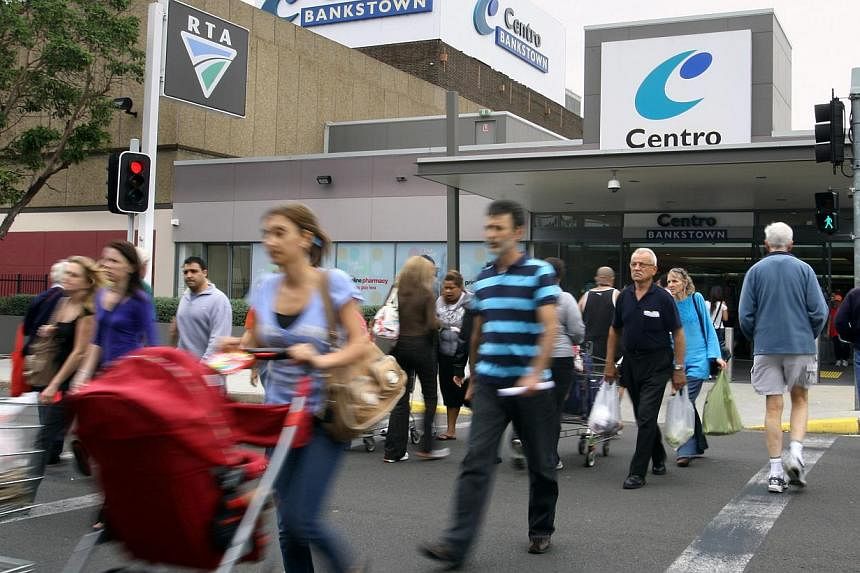SYDNEY (Reuters) - Australian retail sales went flat in April in a blow to hopes for a sustained pick up in consumer demand while the country's trade deficit blew out to a record as exports sagged, a double whammy that sent the local dollar sliding.
The unchanged reading for retail spending confounded forecasts for a 0.4 per cent increase and will be a particular disappointment to the Reserve Bank of Australia (RBA) which had recently talked up the chances of a revival.
The retail industry accounts for A$288 billion of Australia's A$1.6 trillion of annual economic output, and is the second biggest employer with 1.25 million workers.
"There are still a lot of headwinds facing the consumer, given that wages growth is so lacklustre they are having to cut back on savings to keep spending," said Su-Lin Ong, a senior economist at RBC Capital Markets. "And that's intertwined with the weakness of commodity prices which is such a drag on national income." Prices for many of Australia's major resources have fallen steeply in the past year or so, taking a big chunk out of profits, investment, wages and tax revenues.
The impact was clear in the trade accounts for April which showed the country's deficit tripled to A$3 billion in April, far above forecasts of A$2.25 billion.
The Australian Bureau of Statistics noted that some of the deterioration was due to bad weather that closed key shipping ports. Yet falling prices still played a major part in the sharp 7.4 per cent drop in total exports.
The dive in exports also happened to coincide with an unusually strong month for imports, which climbed 5 per cent. Imports of capital goods alone jumped 10 percent which could be viewed as a positive for the investment outlook.
Still, the combination of soft retail numbers and a startling trade deficit wiped away much of the glow left by Wednesday's surprisingly solid 0.9 per cent increase in gross domestic product (GDP).
Investors reacted by knocking the local Aussie dollar down half a U.S. cent to US$0.7720, while narrowing the odds on another cut in interest rates.
It has only been a month since the RBA cut rates to an all-time low of 2 per cent, so the market sees only a modest chance of an easing out to August. The implied probability of a move then rises to around 60 per cent by Christmas.

